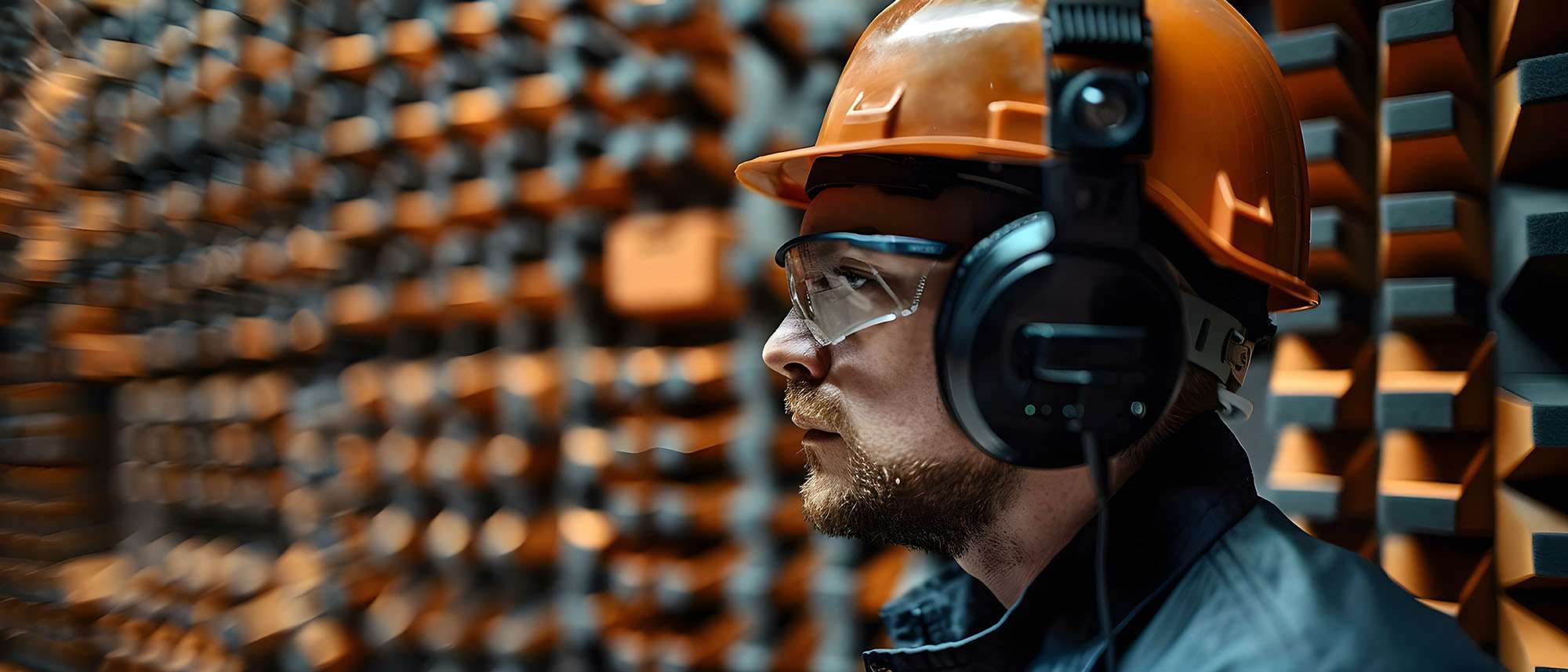The Sound of Compliance: Understanding Sound Insulation Testing with UK Building Compliance

In today’s construction industry, ensuring buildings meet high standards for comfort and liveability is essential. One key component of this is sound insulation, which prevents unwanted noise from infiltrating living and working spaces. At UK Building Compliance, we specialise in sound insulation testing to ensure your buildings meet these vital standards and comply with UK Building Regulations.
What is Sound Insulation Testing?
Sound insulation testing measures a building’s ability to block airborne and impact noise through walls, floors, and ceilings. In the UK, these tests are governed by Part E of the Building Regulations, which outlines the requirements for sound resistance in new buildings and conversions.
Why is Sound Insulation Important?
Sound insulation is crucial for several reasons:
- Health and Well-being: Excessive noise can cause stress, sleep disturbances, and other health issues. Effective sound insulation ensures a quieter and more comfortable living environment.
- Productivity: Noise can significantly distract workplaces, reducing productivity. Proper sound insulation helps maintain a focused and efficient working atmosphere.
- Privacy: Sound insulation provides privacy by reducing the transmission of sound between rooms and apartments, essential in multi-occupancy buildings.
Our Role at UK Building Compliance
At UK Building Compliance, we are dedicated to helping builders, developers, and architects achieve compliance with the stringent sound insulation requirements set out in the UK Building Regulations. Our team of experts conducts thorough sound insulation tests, providing detailed reports and guidance on meeting and exceeding compliance standards.
Our Services
- Pre-Completion Testing: We conduct tests before building completion to ensure they meet the required sound insulation standards. Using state-of-the-art equipment, we measure airborne and impact noise transmission, providing accurate and reliable results.
- Consultancy and Design Advice: We offer consultancy services to help clients design buildings with optimal sound insulation from the outset. Our experts can advise on materials, construction techniques, and design modifications to improve sound insulation performance.
- Remedial Advice: If a building fails to meet the required standards, we provide actionable remedial advice. Our team can recommend specific measures to improve sound insulation and ensure compliance, helping to avoid costly delays and modifications.
- Certification: Once a building passes the necessary tests, we provide certification to confirm that it meets the required sound insulation standards. This certification is crucial for regulatory approval and can enhance the marketability of the property.
Our Testing Process
Our sound insulation testing process follows a systematic approach to ensure accurate and reliable results:
- Preparation: The first step involves preparing the site for testing. This includes closing doors and windows, sealing any gaps, and ensuring the building is in a suitable state for accurate measurement.
- Airborne Sound Insulation Testing: This test measures the sound transmitted through walls and floors from one room to another. We generate a controlled noise in one room and measure the sound levels in the adjacent room.
- Impact Sound Insulation Testing: This test measures the sound transmitted through floors due to impact noise, such as footsteps. We use a tapping machine to simulate the impact noise and measure sound levels in the room below.
- Analysis and Reporting: The collected data is analysed to determine the sound insulation performance of the building. We provide a detailed report outlining the results and any necessary remedial actions.
Ensuring Compliance with Part E
Part E of the Building Regulations outlines the requirements for sound insulation in buildings. It specifies minimum standards for both airborne and impact sound insulation, which must be met to achieve compliance. At UK Building Compliance, we ensure that all testing and reporting are conducted in accordance with these regulations, helping clients avoid penalties and delays.
Key Requirements of Part E
- Airborne Sound Insulation: Minimum standards for airborne sound insulation between dwellings and within residential buildings.
- Impact Sound Insulation: Minimum standards for impact sound insulation for floors between dwellings and within residential buildings.
- Pre-Completion Testing: Requirement for sound insulation testing before completion to ensure compliance with the standards.
- Change of use:
- Airborne walls and floors: 43 DnT,w + Ctr dB Minimum
- Impact floors: 64 L’nT,w dB Maximum
- New Build:
- Airborne walls and floors: 45 DnT,w + Ctr dB Minimum
- Impact floors: 62 L’nT,w dB Maximum
Benefits of Choosing UK Building Compliance
- Expertise and Experience: With years of experience in the field, we have a deep understanding of the regulations and the practical aspects of sound insulation testing.
- Accurate and Reliable Results: Using the latest testing equipment and methodologies, we provide precise and reliable results that clients can trust.
- Comprehensive Service: From initial consultation to final certification, we offer a full range of services to ensure buildings meet the required sound insulation standards.
- Cost-Effective Solutions: By providing expert advice and remedial recommendations, we help clients achieve compliance in a cost-effective manner, avoiding unnecessary expenses and delays.
Conclusion
Sound insulation is a critical aspect of building design and construction, directly impacting the comfort, health, and productivity of occupants. At UK Building Compliance, we offer essential sound insulation testing services to ensure buildings meet the stringent requirements set out in the UK Building Regulations. With our expertise, accurate testing, and comprehensive support, we help builders, developers, and architects create spaces that are not only compliant but also comfortable and conducive to well-being.
For more information on sound insulation testing and how UK Building Compliance can assist you in meeting regulatory standards, visit our website.
Share
